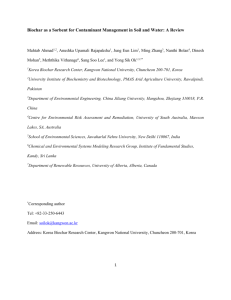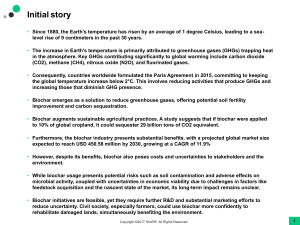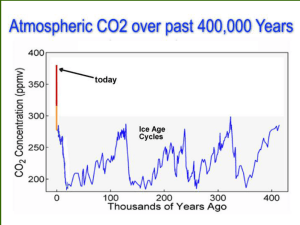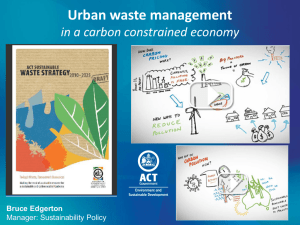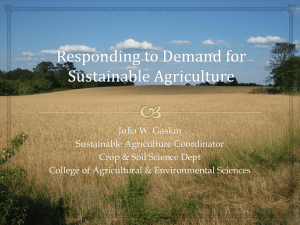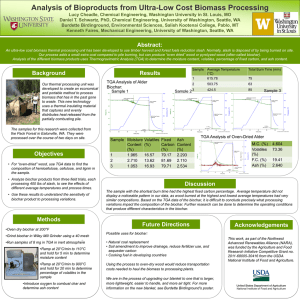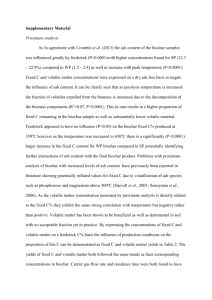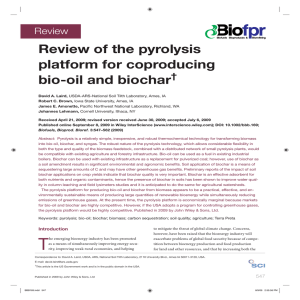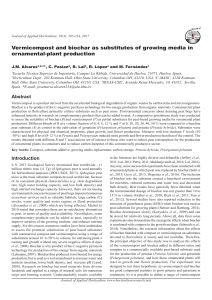Don Hofstrand
advertisement
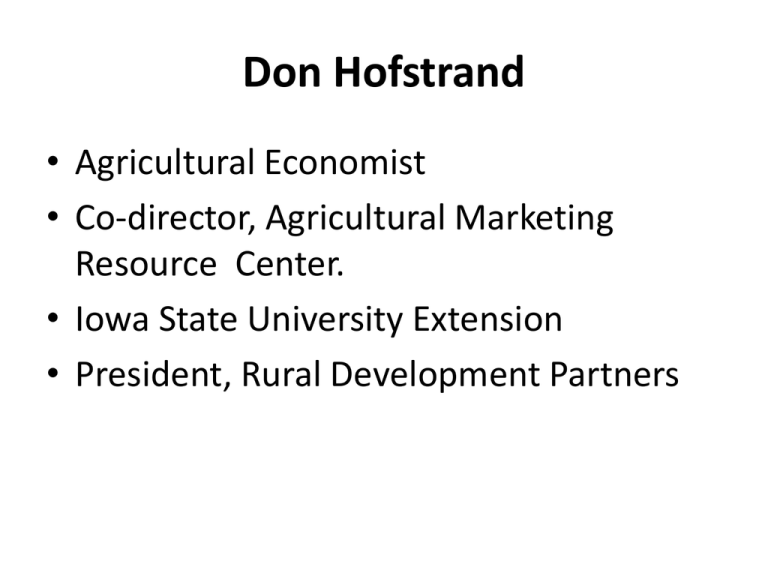
Don Hofstrand • Agricultural Economist • Co-director, Agricultural Marketing Resource Center. • Iowa State University Extension • President, Rural Development Partners Comparison of traditional rainforest soils (left) with biochar plot (right) Agronomic Benefits of Biochar • • • • • • Increase soil organic matter Improve cation exchange capacity Increase microbial activity Improve nutrient efficiency Improve soil pH Increase yields Environmental Benefits of Biochar • Sequesters carbon Biomass Pyrolysis to Reduce Atmospheric Carbon* Current situation – 4.9 gigaton increase per year Pyrolysis -- 4.0 gigaton increase per year • 50% of Global Crop Residues • 50% of Global Forestry Residues Pyrolysis – 3.1 gigaton increase per year • 50% of Global Crop Residues, • 67% of Forestry and Below Ground Biomass (stumpage) • Forest Thinning * Review of the pyrolysis platform for coproducting bio-oil and biochar Environmental Benefits of Biochar • Sequesters carbon • Reduce nitrous oxide emissions • Reduces carbon emssions by reducing fertilizer and lime application. • Reduce nutrient runoff • Other GHG Emissions from Corn Ethanol Corn Production Fertilizer and Lime Nitrous Oxide Emissions Seed and Pesticides Fuel, LP Gas & Electricity 15% 25% 3% 7% Biorefinery Natural Gas Electricity Grain Transport & Other 34% 11% 5% Total 100% Biochar Revenue from Crop Residue One ton of crop residue = .45 to .67 ton of CO2 $20 per ton CO2 = $9.00 to $13.40 per ton crop residue $50 per ton CO2 = $22.50 to $33.50 per ton crop residue Pyrolysis Produces Biochar and Bioenergy Co-products of Biomass Pyrolysis • Biochar (high energy density solid) • Bio-oil (high energy density liquid) • Synthesis Gas (syngas) ( low energy density gas) Bio-Oil & Syngas • • • • • Operate pyrolysis facility Co-fire electricity production Transportation fuel (gas and diesel) Renewable ammonia Other Indirect Land Use Conversion Food versus Fuel versus Carbon • Corn Ethanol -- (compete with each other) • Biochar Pyrolysis -- (compliment each other) Ag Marketing Resource Center • Renewable Energy & Climate Change Newsletter (AgMRC.org). • International Biochar Initiative (http://www.biochar-international.org/) • U.S. Biochar Conference – June – Iowa State University (http://www.biorenew.iastate.edu/events/bio char2010/registration.html)
